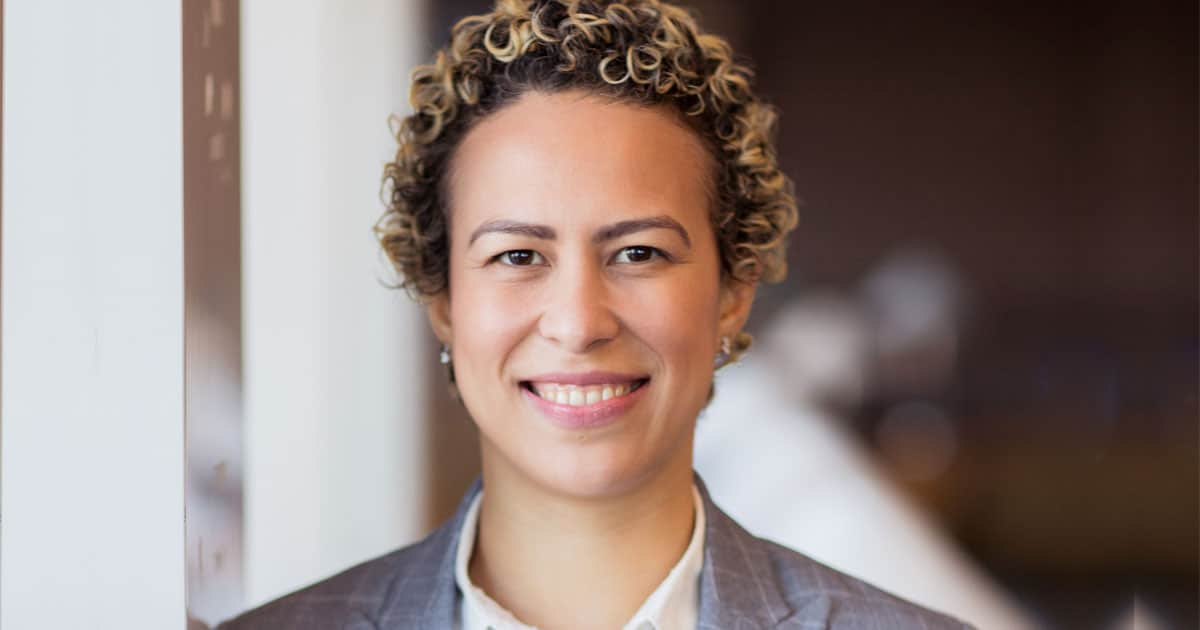The Expert Q&A: Advancing Diversity, Equity, and Inclusion With Bentley University’s Yaro Fong-Olivares

Q: It has been more than six months since this summer’s Black Lives Matter protests sparked a new national dialogue about race in America. Have you seen changes in workplaces since then?
The primary change is that more people are talking about racialized violence, systemic racism, and white supremacy. There is a more widely spread thirst for information about racism and a greater explicit desire to become racially diverse, anti-racist, not just diverse.
In the past, CEOs were vaguer about their stance on racial injustice. Now, there is an expectation for CEOs to speak up and speak out, condemning anti-Black racism, not just promoting diversity.
For example, we used to start training sessions with the business case and human case for DEI, and now most participants already know about the business case and the impact of micro-aggressions in the workplace. My hope is that we can continue pushing ourselves to tackle racism in the workplace and develop organizational practices that truly create equity for all underrepresented communities.
Q: Some people are hesitant to speak up on issues related to diversity, equity, and inclusion because they feel they don’t know enough and may misspeak. What are some of the best ways you have found to foster productive conversations about workplace equity?
As authors Kenneth Jones and Tema Okun write, one white-dominant norm is the right to comfort related to the expectation of politeness. This means that some equate naming bias with disagreement or discord. This leads to fear of saying the wrong thing or being called a racist.
We also tend to be very individualistic and assume that racism is an interpersonal and conscious aspect of who we are. We know that much of what we have to do is address structural and systemic racism or how every system is based on privileging dominant identities such as whiteness or maleness.
To that end, naming that racism and gender inequity is not an individual bias; instead, it lives within our organizational systems, processes, norms, can open up the conversation. Rather than looking for ways not to offend one another, let’s look for trends about who we hire, retain, or promote. Look for trends and implicit norms and name those.
Q: What are some specific things people in leadership positions can do to address racial injustice, especially during these times when so many are working remotely?
The first and most important thing I think all of us can do is examine our own racial identity and how we have internalized white supremacist thinking. Another way to think about this is to consider your location within white supremacy and other dominant identities.
For me, I know my education and skin complexion give me a lot of privilege. I am queer and very straight passing, which means I can choose to disclose or not. These are all privileges and potential barriers; it’s not either-or. Leaders can normalize talking about identity, talking about privilege, and creating a culture of unlearning by modeling transparency when making mistakes or getting it wrong. As a matter of fact, just stop trying to get it right. This work is about undoing centuries of constructed biases, we will not get it right, but we can push the work of equity forward.
Q: What can the many people who are concerned about racial injustice—but not in positions of leadership—do to make a difference in their daily working lives?
When it comes to racial injustice, all of us have leadership positions just because we exist. I don’t mean to simplify, what I mean is that racial injustice is a deeply embedded set of norms and assumptions that we all learn and therefore are all complicit, myself included. When you look at it as a web of institutionalized and unquestioned norms privileging some and devaluing others, we find many ways to speak up about race and advocate for racial equity. For example, in a previous job, I was the only person of color. My job had nothing to do with speaking up about racism. In fact, I was a personal trainer. I started expressing curiosity to my manager about why we didn’t have any Black women trainers. That led to more awareness and eventually intentional efforts to understand why we were not attracting Black women. Sometimes, a simple question can have a ripple effect, and those are the moments that lead to lasting change.
Q: These are challenging times on many fronts. Who or what is inspiring you now?
I am inspired by the incredible organizers who have mobilized against voter suppression. I am also inspired by the many working parents who are managing self and ensuring our future generations’ well-being.
Yaro Fong-Olivares is the Director of Corporate Education at Bentley University. In her role, she designs and delivers customized training programs and workshops on diversity, equity and inclusion, and leadership development for corporate partners and student leaders at Bentley University.